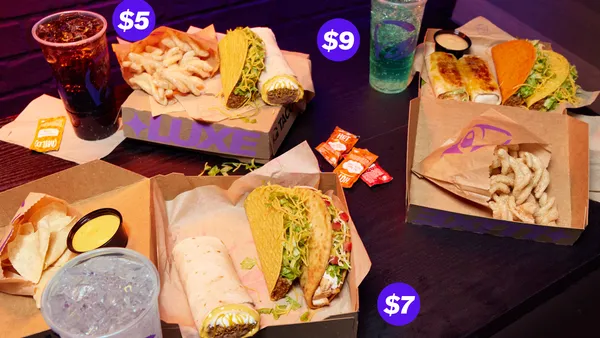Dive Brief:
- Yelp added consumer alerts on its business pages that caution people about businesses that "may be associated with overtly racist actions," according to a company blog. The feature was introduced in response to a surge of reviews throughout the past few months warning users of alleged racist behaviors at businesses.
- The platform said a business will be flagged when it gains "public attention for reports of racist conduct, such as using racist language or symbols." The alert will say, "Business Accused of Racist Behavior," and will appear on the business' Yelp page, along with a link to a news article verifying the incident. The company also will suspend the ability to add posts until it fully investigates the issue.
- The alerts come on the heels of a number of other initiatives introduced by Yelp this summer in response to global protests in the wake of George Floyd and Breonna Taylor's deaths. Those initiatives include the Black-owned business attribute launch and the 15 Percent Pledge. Yelp notes that since these launches, reviews mentioning Black-owned businesses were up more than 617% year-over-year.
Dive Insight:
This latest feature builds on Yelp's Public Attention Alert introduced earlier this year to warn users of an influx of reviews due to increased attention if someone associated with that business was accused of or is the the target of racist behavior. Since that launch, the number of reviews based on news reports increased by 133%, and Yelp has placed more than 450 Public Attention Alerts on pages between May 26 and Sept. 30.
The difference with this latest introduction is that it’s a little less nuanced: If a business is accused of such conduct, including language or symbols, Yelp will place a "Business Accused of Racist Behavior Alert" on its page.
Since 2012, Yelp has relied on its alerts program to communicate to businesses whether or not those businesses are getting "review bombed" with ratings, versus first-hand customer experiences. In January, Yelp also rolled out popup notifications that showed restaurant health scores that flag health inspection violations.
This latest iteration is likely to be well-received by diners, as a solid majority of consumers — 81% of Black consumers and 54% of White consumers — want companies to speak out against racial injustice. Further, 77% of U.S. consumers said it is "deeply important that companies respond to racial injustice to earn or keep their trust." This trend isn’t likely to go away, as younger consumers especially (47% of millennials) believe CEOs have a responsibility to take a stand on social issues.
These alerts should influence restaurants to prioritize a non-racist culture through training, as the risk is significant. Sixty percent of the U.S. population say that how a brand responds to racial justice protests will influence whether they buy or boycott the brand in the future. Yelp generates a staggering 28 million mobile app unique users a month, so such an alert can easily trigger a boycott.
"Increasingly, consumers across the U.S. are voting with their dollars by supporting businesses that align with their values," Noorie Malik, Yelp's vice president of user operations, said in the blog post. "As always, we continue to evaluate how we can best use our platform to build a better, more equitable and inclusive environment where consumers and businesses can interact safely and fully informed."
There are challenges to these alerts because the definition of racism could differ for some people and that definition could evolve over time. Yelp, which aligns with Black Lives Matter and the racial justice movement, told Eater its current definition is the "use of racist language, symbols or sentiment that clearly discredits the Black Lives Matter movement."
Yelp may also run into issues if a company feels like it's been wrongly accused and has had its reputation put on the line over media reports. The move to suspend posts before it fully investigates could be tricky as it navigates the new feature.










